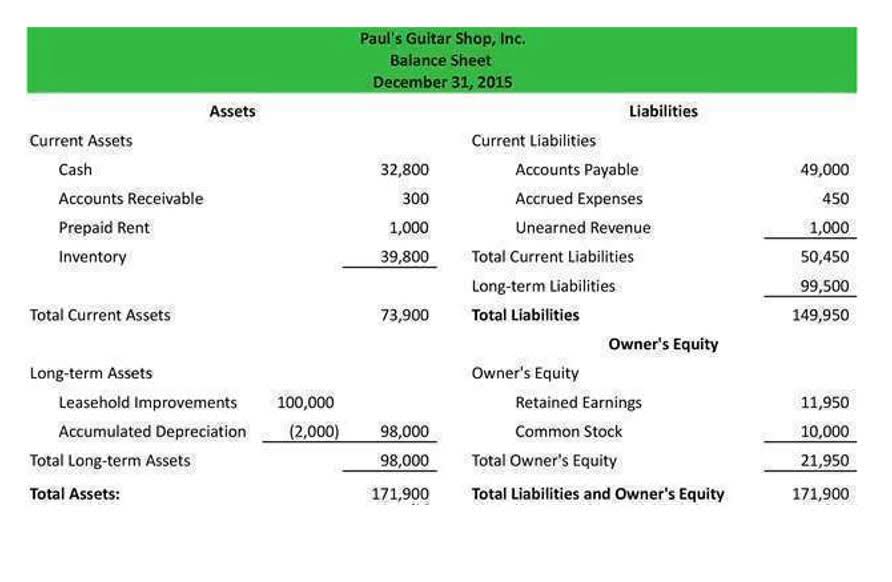
With all of your calculations completed, you can now calculate goodwill. This is done by subtracting the fair market value adjustment in Step 3 from the excess purchase price. For example, if your excess purchase price is $400,000 and your fair value adjustment is $100,000, your goodwill amount would be $300,000.
What kind of asset is goodwill?
- In the FR exam, this can be worth many marks and contain many forms of adjustment.
- Due to this, goodwill is shown as an asset on the balance sheet, whereas other types cannot be recognized.
- So, although your business may be small today, next year you could be buying up the competition.
- Goodwill is not always part of acquiring a business but needs to be recorded in your company’s general ledger any time that the cost of purchasing a business exceeds the fair value of its assets and liabilities.
- In HP’s case, the decision to purchase Autonomy without sufficient due diligence and tire-kicking represented one of many instances where a serious lapse in judgment was made.
- Contingent consideration In the FR exam, this will take the form of a future cash amount payable dependent on a set of circumstances.
Undertaking an impairment for something as ‘intangible’ as goodwill is not straightforward. It is difficult to isolate and test an asset which is not separable, so a different approach is required. The carrying amount of the plant is reduced by excess depreciation of $100,000 for each year ([$2.5m/ 5years] – [$۲m/ 5 years]) in the post-acquisition period. Therefore, the net adjustment in the carrying amount of property, plant and equipment is $400,000.

Understanding Goodwill in Accounting: A Comprehensive Guide for Business Owners & Students
- Sometimes it makes sense to pay more for something than its market value.
- My Accounting Course is a world-class educational resource developed by experts to simplify accounting, finance, & investment analysis topics, so students and professionals can learn and propel their careers.
- While normally this may not be a major issue, it can become significant when accountants look for ways to compare reported assets or net income between different companies.
- From there, subtract current liabilities, long-term debt, and residual equity (total equity minus liabilities, debt, and equity already held by preferred stockholders).
- To determine goodwill with a simple formula, take the purchase price of a company and subtract the net fair market value of identifiable assets and liabilities.
Goodwill is not always part of acquiring a business but needs to be recorded in your company’s general ledger any time that the cost of purchasing a business exceeds the fair value of its assets and liabilities. Goodwill is calculated and categorized as a fixed asset in the balance sheets of a business. From an accounting and fiscal point of view, the goodwill is not subject to amortization. However, accounting rules require businesses to test goodwill for impairment after a certain period of time. This is why GAAP requires that goodwill can only be recorded when an entire business or business segment is purchased. An actual figure or dollar amount must exist in order to record and report it as an intangible asset on the balance sheet.
Join 41,000+ Fellow Sales Professionals
- Goodwill in accounting refers to the monetary premium investors place on a company based on intangible factors like its reputation, its customer loyalty, and its brand recognition.
- Goodwill is typically recorded on the balance sheet when a company buys another business and pays a premium for it.
- The fair value of the non-controlling interest at acquisition may be directly given to candidates, or they may have to calculate the fair value by reference to the subsidiary’s share price.
- If the amount is payable in more than one year, the candidate will be given a discount factor as a decimal.
- Goodwill simply refers to the value attached to the brand of an entity that puts the business in an advantageous position by attracting more & more potential consumers without putting any extra effort into the same.
Plateau Co had a third of the goods still in its inventory at 30 September 20X7. (ii) On 1 October 20X6, Plateau Co sold an item of plant to Savannah https://www.bookstime.com/ Co at its agreed fair value of $2.5m. The estimated remaining life of the plant at the date of sale was five years (straight-line depreciation).
How To Conduct a Small-Business Valuation

Fair market value can be a bit tricky to calculate and is not an Accounting 101 task, so be sure to have a CPA involved in the process, even if it’s just to look over your calculations. While the results will only be an estimate, fair market value should be arrived at by examining similar assets and their value on the open market. These accounts represent assets which cannot be seen, touched or felt but they can be measured in terms of money. Record the goodwill as $1.6 million in the noncurrent assets section of your balance sheet. Tangible assets are physical items that can be seen and touched, such as buildings, machinery, and inventory. Intangible assets, on the other hand, are non-physical resources like patents, copyrights, and goodwill, which hold value for a company but cannot be physically touched.
- It helps stakeholders understand the value of intangible assets, such as reputation and customer relationships, that contribute to a company’s success.
- Goodwill accounting involves the process of calculating and accounting for the value of an intangible asset that is part of a company’s value.
- Only identifiable assets and liabilities, or those that can be bought or sold separately from the business, can have a fair value.
- The deal was valued at $35.85 billion as of March 31, 2018, per an S-4 filing.
- Goodwill frequently arises when one company buys another; it is defined as the amount paid for the company over book value.
Business Goodwill
If anything falls outside of these categories, then it cannot be said to be true goodwill. Additionally, it cannot be transferred—goodwill forms a core part of the business which cannot separate and can only move with the company what does goodwill mean in accounting in question. The seller has the right to start his own competing firm (without using the old brand name/goodwill). However, if the parties agree to a restriction of trade during the transaction, he has no such rights.


